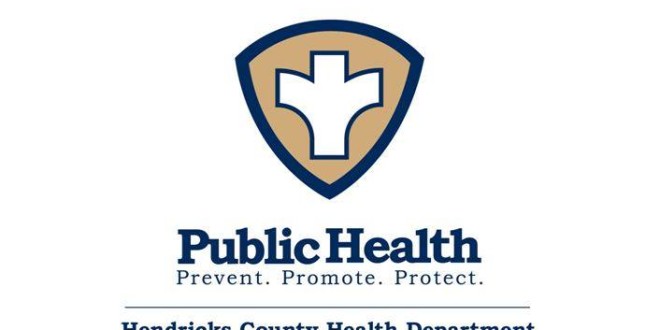Health officials offer recommendations as part of International Prenatal Infection Prevention Month
HENDRICKS COUNTY, IN – Pregnant women and unborn babies are vulnerable to many different diseases that can cause serious illness and death. This February, as part of International Prenatal Infection Prevention Month, local public health officials are offering tips on preventing the spread of disease during pregnancy.
“There are many diseases that can be very dangerous for a pregnant woman and her unborn baby,” states Kandi Jamison, Assistant Director of Public Health Nursing at the Hendricks County Health Department. “We want to make sure that women who are pregnant or want to become pregnant are aware of what to do to stay healthy.”
The first step toward preventing the spread of disease during pregnancy is for women to seek preconception care before they get pregnant.
“Preconception care gives women the opportunity to talk to their doctors about their plans to start a family and take steps to find out if there are any health concerns that need to be addressed first,” says Jamison.
Before getting pregnant, the Health Department recommends that women:
- Get themselves and their partner tested, and treated when needed, for sexually transmitted infections, including HIV, Hepatitis B, and Hepatitis C.
- Avoid travel to places where mosquitoes carry the Zika virus, such as the Caribbean, South America, and certain parts of the southern United States.
- If they have travelled to an area with Zika virus, avoid having unprotected sex for 8 weeks; if their male partner has travelled to an area with Zika virus, avoid unprotected sex for 6 months.
Once pregnant, Jamison urges women to set up prenatal care as soon as possible with a doctor or midwife.
“Early and routine prenatal care allows doctors and midwives to monitor the health and safety of the pregnancy, mom, and her baby.”
Through prenatal care, doctors and midwives can continue monitoring and testing women at high risk for sexually transmitted infections and Zika virus, as well as test for additional diseases like group B strep.
“Group B strep is a very common bacteria that usually doesn’t cause problems or show symptoms in pregnant women, but can cause very serious problems for newborns,” continues Jamison.
According to the Centers for Disease Control and Prevention (CDC), group B strep affects about 1 in 4 women with little to no symptoms. If passed from mother to baby, however, the bacteria can cause severe illness or death for the newborn.
“There are safe, effective treatments that can prevent the spread of diseases from mom to baby, and early, routine prenatal care offers the best chances of getting the right treatment at the right time.”
The Health Department, Group B Strep International, and CDC also recommend that pregnant women take additional steps to keep themselves and their babies safe during and shortly after pregnancy:
- Wash hands frequently with warm, soapy water.
- Avoid other’s blood and bodily fluids as they can transmit diseases like HIV, Hepatitis B and C, and Zika virus.
- Avoid travel to places where mosquitoes carry the Zika virus, such as the Caribbean, South America, and certain parts of the southern United States.
- If they have travelled to an area with Zika virus, avoid having unprotected sex for 8 weeks; if their male partner has travelled to an area with Zika virus, avoid unprotected sex for 6 months.
- Heat hot dogs, deli meats like ham and bologna, and fermented or dry sausages to 165°F or until steaming hot before eating.
- Avoid eating or drinking unpasteurized dairy products, like raw milk and soft cheeses like feta, queso fresco, and brie.
- Avoid eating refrigerated smoked seafood, raw sprouts, raw fish, and undercooked meats.
“Pregnant women are at a higher risk of experiencing serious problems from foodborne illness, especially Listeriosis,” warns Jamison. “That is why it is so important that women be careful of which foods they eat and how those foods are prepared.”
Pregnant women who experience fever, headache, muscle aches, nausea and vomiting, abdominal cramps, or diarrhea should contact their doctor or midwife right away and inform them of any undercooked or unpasteurized foods they have eaten within the last two months.
The Health Department encourages pregnant women and their families to get the flu vaccine during flu season, October through March, and the Tdap vaccine to help prevent the spread of whooping cough to newborns.
“It’s called cocooning, and we recommend that all families keep newborns safe by getting vaccinated,” states Jamison. “We also encourage parents to make sure their newborn gets their Hepatitis B vaccine before leaving the hospital.”
Ultimately, Jamison says, that pregnant women need to be open and honest with their doctor or midwife and not be afraid to ask questions.
“If you have concerns about your health or pregnancy, never be afraid to speak up or seek out answers. Our staff is also available to help you find the information you need when you need it.”
International Prenatal Infection Prevention Month is celebrated every February by multiple organizations around the world. For more information on infection prevention during pregnancy in the United States, visit Group B Strep International’s website at http://www.groupbstrepinternational.org/, and the Centers for Disease Control and Prevention’s website at https://www.cdc.gov/Features/PrenatalInfections/.
For more information about infection prevention during pregnancy, as well as healthy pregnancy care, contact the Hendricks County Health Department Public Health Nursing Division at (317) 745-9222.






